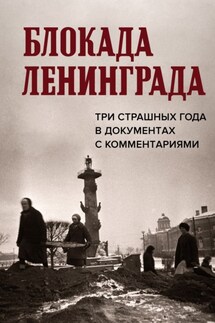Solar Wind. Book one - страница 5
Marcus was already fourteen, he had a whole life ahead of him. He believed that with due diligence and sufficient mental stress, he would achieve everything his mother and great-grandfather had prepared him for. He wouldn't let them down!
He would not let Emperor Hadrian down.
He, Marcus, saw Hadrian looking at him in their first meeting. He was six years old at the time, but he remembered Caesar's attentive affectionate gaze, his benevolent smile, his soft muffled voice, like the cautious roar of a leopard. Marcus heard a similar growl when his great-grandfather Regin took him with him to the Flavium Amphitheatre, where gladiators fought each other every day and killed thousands of wild animals. Leopards growled quietly, restrainedly, but menacingly enough to scare the enemy.
Hearing the name of Antinous, Marcus immediately remembered the young man, so beloved by Hadrian, their first meeting in the palace of the emperor. One day after returning from the East, Marcus wished to see Caesar. No one then knew what the reason for his curiosity was, no one assumed that the emperor saw in Marcus not just a boy from a noble family, but a future ruler of Rome. Perhaps this option prompted him an innate intuition? Or a long-drawn horoscope? Anyway, Marcus was brought to Palatine—Hadrian lived in this palace.
And then Marcus noticed a young man who was walking slowly in the stola18 on the hall, lazily descending to the bed near Hadrian. Antinous looked surprisingly feminine, possessed a certain melancholic beauty, and if Marcus had not guessed from some signs in front of him that this was a man, he would have mistaken him for a young blossoming girl.
“Marcus, come over, meet Antinous!” Hadrian commanded softly but commandingly.
Antinous suddenly rose from the bed, going over to Marcus and putting his arms over his shoulders. The boy felt the spicy aroma of incense, which soaked into Antinous's clothes, his skin, his hair. It was the fragrance of the East, Syria or Egypt. Marcus once smelt a similar aroma in a shop with Egyptian goods, where he often went with his mother.
“Greetings Marcus Annius Verus!” Antinous said melodiously, his voice was high, ringing, as the boys say, until nature makes them more grown-up.
“Be healthy, Antinous!” Marcus replied with the usual Roman greeting. Not knowing how to behave with Hadrian's favorite, he was embarrassed and stepped back a step. But Antinous laughed, “Don't be afraid of me, Verissimus!”
“Why should I be afraid of him?” the boy, who knew nothing about adult relationships, thought with surprise. Then, of course, he found out what the matter was, but back then he didn't know anything about it. “I'm a Roman citizen, and he's just a freedman.”
In little Marcus, his mother has already brought up a sense of pride in belonging to the great Roman people. How could it be otherwise?
Rome was a huge, majestic city-state, extending to the West and East, North and South, covering the entire Mediterranean Sea. This vast civilization lived by the strict, logical laws established by the Roman mind. The Romans believed that inside man lives a genius who guides and protects everyone. The genius of Rome had guarded the city all these years, almost a thousand years.
How many bitter, tragic moments were there when the fate of the Roman people hung in the balance. Sabinians, Carthage, Gauls, Parthians, Germans. But Rome survived, it rose, developed, brought peace and culture to other nations and therefore a proud formula “Civis Romanus sum!”






